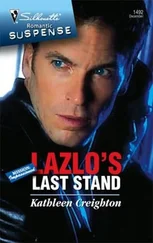“With your military background, you understand better than most men the concept of honor and pride,” said Mrs. Ali. “In the end, I am a woman and I would throw away every shred of pride to keep this little boy with me. Abdul Wahid knows this and therefore mistrusts my ability to see his point of view.”
“I’m not an expert on the faith behind his sense of duty,” said the Major. “I could not instruct him.” Yet he felt his opposition melting under the warm satisfaction of hearing Mrs. Ali’s compliment.
“I ask you only to talk to him as one honorable man to another,” said Mrs. Ali. “Abdul Wahid is still exploring his relationship to his faith. We all pick and choose and make our religion our own, do we not?”
“I can’t imagine the various ayatollahs or the Archbishop of Canterbury agreeing with you,” said the Major. “I believe you are being unorthodox.”
“I am being realistic,” said Mrs. Ali.
“I had no idea shopkeepers were so heretical,” said the Major. “I am quite astonished.”
“Will you talk to him for me?” she asked, her brown eyes unwavering.
“I will do anything you ask,” he said. He read gratitude in her face. He wondered if he might also be seeing some happiness. He turned away and made himself busy poking at a large weed with the tip of his stick as he added, “You must know that I am entirely yours to command.”
“I see chivalry lives on,” she said.
“As long as there’s no jousting involved, I’m your knight,” he said.
Just as the Major was thinking that he could not remember, in recent years, a more satisfying Sunday afternoon, a woman walked across the grass below them and pulled the small boy and his puppy away from George. They moved off toward the car park as if to leave, but a couple of hundred feet away she stopped and shook the boy by the arm, her angry face close to his as she spoke to him. The boy was then released again to run with his dog. George, who had stood up and watched as they walked away, now came slowly back to the table with his shoulders hunched.
“What happened, George?” said Mrs. Ali. “Was that woman rude to you?” George shrugged.
“Speak up, now,” said the Major, trying to keep his voice from being too gruff. “What’s the matter?”
“Nothing,” said George. He sighed. “His mum just said he wasn’t allowed to play with me.”
“The ignorance of some people,” said the Major, half-rising from his seat. He saw now that it was the woman who had been screaming earlier, the mother of Eddie. He would have bounded after her only she was very large and, though a slow and lumbering woman, was likely to be belligerent.
“I’m sorry, George,” said Mrs. Ali. She placed a hand on the Major’s arm as if to restrain him and the Major sank back onto his seat.
“Back home no one plays with me, either.”
“Surely you must have many friends,” said the Major. “Fine young men just like you?”
George gave him a pitying glance, as if he himself were the old man, and the Major an ignorant child. “If you have a mum but not a dad, they don’t play with you,” he explained. “Can I have another bun?” The Major was so stunned he passed the plate without thinking. It was only as George sank his face into the icing that the Major remembered how he had never allowed his own son more than a single treat at tea and had sometimes, at suitably random intervals, made him do with no treats at all in order to avoid spoiling him. In this case, another cake seemed the only remedy to hand.
“Oh, George, your mother and your aunt Noreen love you so much, and your nanni loved you very much,” said Mrs. Ali, running around the table and falling to her knees on the slightly dirty concrete to wrap her arms around the boy. “And I love you very much as well.” She kissed his face and stroked his hair while George squirmed and tried to keep the bun from tangling in her long hair. “You mustn’t lose sight of that when people are cruel.”
“You seem like a very intelligent little chap,” said the Major as Mrs. Ali released George from her hugs. The boy looked with some suspicion at the Major, who decided not to offer the “sticks and stones” advice he had intended but instead reached toward George’s dirty, sticky hand and said, “I would be honored if you would consider counting me as a friend.”
“Okay,” said George, shaking hands. “But what else can you play besides kites?” Mrs. Ali laughed while the Major did his best to maintain a grave and thoughtful expression.
“Have you ever played chess?” he asked. “I could teach you, I suppose.”
On the way home, George slept in the backseat, tired from all the running and filled with cake. The Major drove as scenic a route as possible; Mrs. Ali seemed entranced by the high banks and snug cottages of the less-traveled lanes. She spotted an old round postbox at a crossroads and he stopped the car so she could post her letter. He held his breath as she stood for a moment, letter in hand, her head curved in thought. He had never imagined so clearly the consequences of mailing a letter-the impossibility of retrieving it from the iron mouth of the box; the inevitability of its steady progress through the postal system; the passing from bag to bag and postman to postman until a lone man in a van pulls up to the door and pushes a small pile through the letterbox. It seemed suddenly horrible that one’s words could not be taken back, one’s thoughts allowed none of the remediation of speaking face to face. As she dropped the letter in the box, all the sun seemed to drain out of the afternoon.
The question of how to begin a casual conversation designed to persuade a young man to accept a stranger’s guidance on life-altering decisions plagued the Major for several days. There seemed to be few opportunities, even if one could find the appropriate words. Abdul Wahid rose very early and left without so much as a cup of tea. He returned late most days, having already had his dinner at the shop, and slipped up at once to his room where he read from his small stack of religious books. His arrival home was often signaled only by a small token of thanks left on the kitchen table: a parchment paper twist of some new tea blend, a package of plain shortbread, a bag of apples. The only strangeness was the sight of his empty shoes lined up at night by the back door and the faint hint of a lime-based aftershave lingering in the bathroom, which Abdul Wahid left wiped and spotless each morning. The Major despaired of finding an opening and in order to fulfill his promise to Mrs. Ali, he began to keep the teapot primed and a kettle warm on the stove, while he lurked about in his own scullery hoping to waylay his guest coming through the back door.
One evening when it was raining heavily, the Major found his chance. Abdul Wahid was delayed in the back hall by the need to shake out and hang up his dripping rain jacket. His shoes must have been soaked through, for the Major heard him stuffing them with crumpled newspaper from the recycling basket. Transferring the kettle to a hotter plate on the Aga, the Major set the teapot in the middle of the table and put out two large mugs.
“Won’t you join me in a mug of hot tea?” he asked as Abdul Wahid entered the kitchen. “It’s a rough night out there.”
“I do not want to give you any trouble, Major,” said Abdul Wahid, hesitating. He seemed to be shivering from the cold. The thin sweater he wore over his shirt was hardly adequate, thought the Major. “Your hospitality is already more than I deserve.”
“You would be doing me a great favor, sitting down for a while,” said the Major. “I’ve been by myself all day today and I could use the company.” He poked up the fire as if the matter were already settled. As he bent over the smoking logs, he realized that his suggestion of loneliness was true. Despite his attempts to maintain a vigorous structure of errands, golf games, visits, and meetings, there were sometimes days like this one, filled with rain and touched with a gnawing sense of parts missing from life. When the slick mud ran in the flower beds and the clouds smothered the light, he missed his wife. He even missed Roger and how the house used to ring to the kicking shoes of grubby boys playing up and down the stairs. He was sorry now for the many times he had rebuked Roger and his friends-he had underrated the joy in their rowdiness.
Читать дальше












